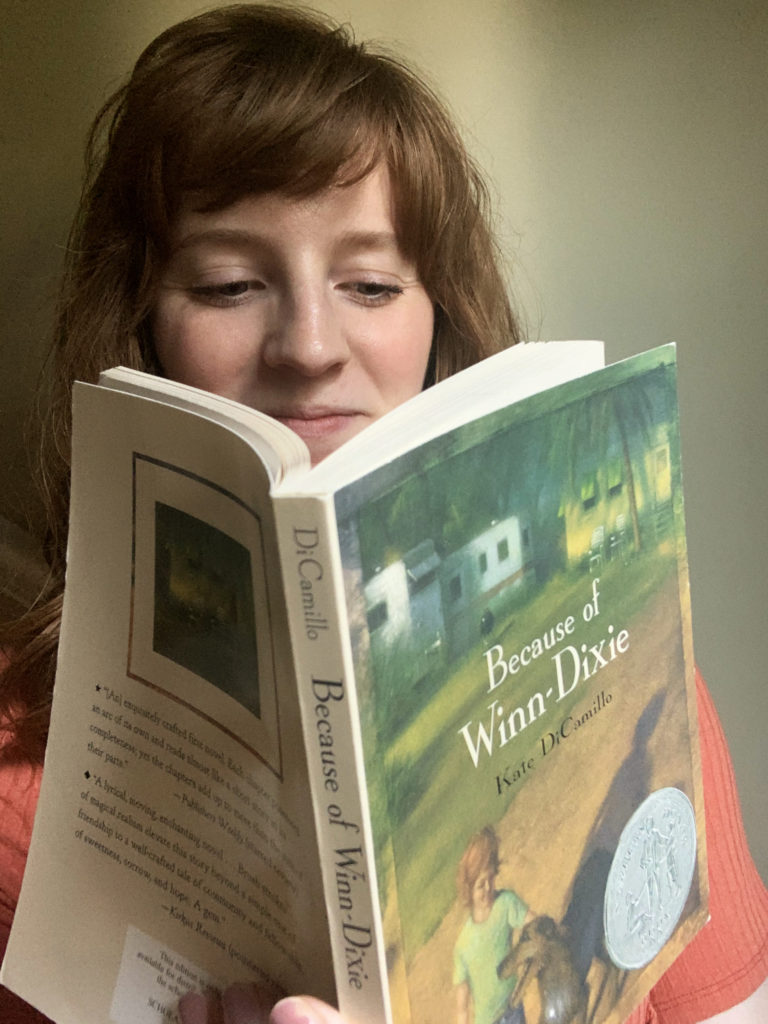Honestly, I’m not sure if I’ve ever heard of anyone disliking Because of Winn-Dixie. A dog graces the cover, so you know you’re going to cry by the end. So, with your expectations set, you can hop into the town of Naomi and follow Opal on all of her adventures. Even the movie does the book justice, which hardly ever happens! So, as a writer, I thought I would analyze what Kate DiCamillo does so well in Because of Winn-Dixie and how she blends faith into the story.
Kate DiCamillo’s Talent

First and foremost, Because of Winn-Dixie succeeds because of Opal’s strong narrative voice. DiCamillo perfectly captured an imaginative ten year old’s voice. Besides including believable, rhythmic dialect, DiCamillo gave Opal a rather intense back story. Despite the difficulty of Opal’s childhood, she still sounds appropriately like a child. She responds to new information with open curiosity as a growing girl would. She wrestles with learning compassion for those who aren’t the nicest to her. Ultimately, her growth is both profound and simple all at once. Her weighty realizations occur seamlessly between egg-salad sandwiches and toe-tapping tunes.
In addition, DiCamillo surrounds Opal with fascinating, deep, and realistic characters. Each person has their own strength and weakness. They each have a sorrow of something they miss. Each character brings a distinctly unique view of the world. In addition, the adults are kind and acknowledge the children’s growing understanding of the world. Ultimately, the detailed characters drive the plot and make mundane tasks interesting.
Faith in Because of Winn-Dixie
With a preacher for the father in the story, Because of Winn-Dixie addresses faith a bit more overtly than most middle grade books. However, DiCamillo never uses the preacher to really preach. While the preacher’s dinner party prayer does point to Opal’s new compassion for others, the true learning and growth come from relationships. The preacher doesn’t tell Opal to let the loss of her mother go; in fact, the preacher struggles with that himself. Instead, nuggets of wisdom tucked in daily conversation guide Opal to that realization. Truthfully, DiCamillo portrays growth in the most realistic way. We don’t grow by being preached at; we grow by interacting with others and learning better ways of connecting with the world around us.
